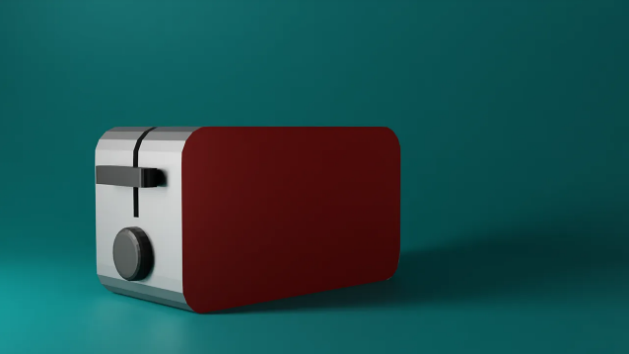How to Design a Toaster Using 3D CAD Software
by Julie80 in Design > 3D Design
69 Views, 0 Favorites, 0 Comments
How to Design a Toaster Using 3D CAD Software

Learn How to Design a Toaster using 3D CAD Software with the help of this article
How to Design a Toaster using 3D CAD Software
The toaster, a quintessential kitchen appliance, is a perfect blend of form and function. While its purpose is straightforward, its design offers endless possibilities for creativity and innovation. Designing a toaster requires attention to detail, including its structure, aesthetics, and user interface—elements that can be precisely crafted using 3D CAD Software.
This article explores how to design a toaster using SelfCAD, a versatile and user-friendly platform for 3D modeling. From conceptualizing the basic shape to incorporating intricate details like buttons, slots, and textures, SelfCAD provides the tools necessary to bring a toaster design to life. By following this guide, you will not only learn how to create a functional and visually appealing toaster model but also gain insights into the process of translating real-world objects into digital 3D representations
To access the interactive tutorial to this article, check out https://www.selfcad.com/tutorials/5q3q3103n4v1t4m5t6p3q3y43z4j415r2v2b
Once you’ve launched the editor;
From the 3D Shapes category on the toolbar choose cube; Set width to 85, depth to 175
Click to finalize cube
Click to activate edge selection; click on highlighted region to select it
From the modify category on the toolbar choose fillet; Set intensity to 20, level to 5
Click to finalize fillet
From the 3D Shapes category on the toolbar choose cube; Set width to 20, height to 110, depth to 110, position x to 20, position y to 20.
Click to finalize cube
Click copy button to copy selected objects
Click move on the toolbar; Set x to -23 using highlighted gizmo
Click ‘x’ to close transformation panel
From the 3D Shapes category on the toolbar choose cube; Set width to 80, height to 5, depth to 50, position y to 50, position z to 90, rotation z to 90
Click to finalize cube
Click on mesh 8, mesh 8 (1), mesh 4 to select
Click stitch & scoop on the toolbar; from the tool panel choose difference, choose mesh 8, 8(1), 12 to subtract.
Click to finalize difference
From the 3D Shapes category on the toolbar choose cylinder; Set top radius to 15, Bottom radius to 15, height to 10, position y to 15,position z to 90, rotation y to 90, rotation z to 90
Click to activate edge selection; Click selection settings button to change selection settings, set loop selection to true, click on highlighted edge to select loop from the object.
click on highlighted edge to select loop from the object.
Click ‘x’ to close selection settings panel
From the modify category on the toolbar choose fillet; Set intensity to 4, level to 4.
Click to finalize fillet
From the 3D Shapes category on the toolbar choose cube; Set width to 50, height to 10, depth to 10, position y to 68, position z to 94
Click to finalize cube
Click on highlighted region to select it
From the modify category on the toolbar choose fillet; Set intensity to 4, level to 4.
Click to finalize fillet
From the 3D Shapes category on the toolbar choose cube; Set width to 5, height to 5, depth to 40, position y to 70, position z to 76
Click to finalize cube
Click on mesh 20, 16, difference 1 to select
Click stitch & scoop on the toolbar; From the tool panel choose union.
Click to finalize union
As you continue honing your design skills, remember that SelfCAD offers a wealth of resources to support your learning journey. To deepen your understanding and explore more advanced features, consider checking out the interactive tutorials (https://www.selfcad.com/tutorials) available on the SelfCAD website. The tutorials page provides a treasure trove of guides, tips, and tricks that cater to designers of all levels.
More structured learning experience can also be accessed at the SelfCAD Academy (https://www.selfcad.com/academy/curriculum/), https://www.youtube.com/@3dmodeling101, and 3D Modeling 101 series (https://www.youtube.com/playlist?list=PL74nFNT8yS9DcE1UlUUdiR1wFGv9DDfTB). This comprehensive resource offers in-depth courses taught by industry experts, allowing you to master the intricacies of SelfCAD at your own pace